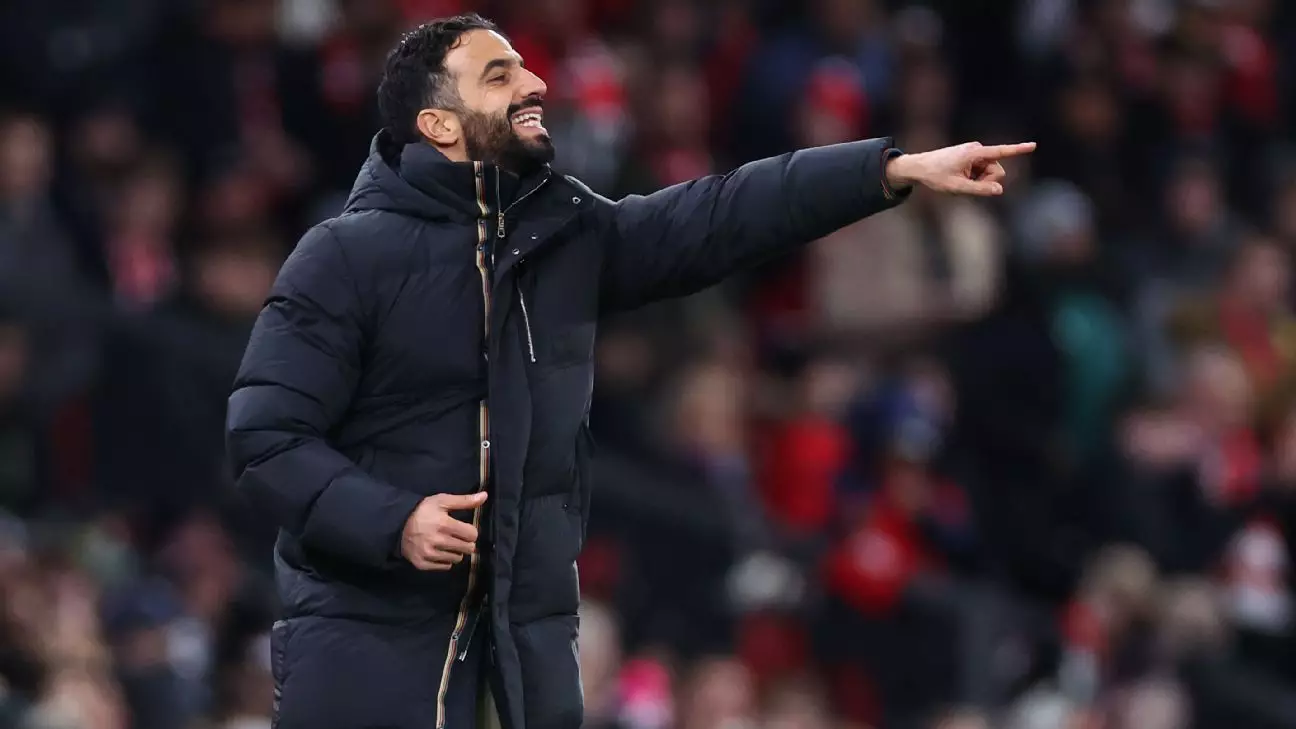Ruben Amorim’s tenure as the manager of Manchester United has been marked by a rather tumultuous beginning, characterized by a blend of excitement and trepidation. While he celebrated his first victory with a 3-2 win against Bodo/Glimt in the Europa League, the road to that win was anything but smooth. The emotions that Amorim has publicly expressed capture the essence of his current struggle—an overwhelming feeling of anxiety as he works to implement his tactical philosophy amidst an unfamiliar roster. It is a reminder that even experienced coaches can find themselves in a state of uncertainty when faced with the weight of expectations.
The fact that the team fell behind 2-1 at one point during the match highlights the ongoing challenges Amorim is grappling with. As a coach known for his tactical acumen, the pressure to deliver results while instilling his playing style creates a seemingly insurmountable tension. Such pressure can be debilitating, especially when he states, “I don’t control nothing at the moment.” This admission underscores the inherent unpredictability of the game, particularly when working with unfamiliar players.
To inject new life into the squad, Amorim made significant personnel changes following a disappointing 1-1 draw with Ipswich. The inclusion of key players such as Lisandro Martínez, Tyrell Malacia, and Rasmus Hojlund indicates his attempt to reshape the team dynamics swiftly. However, the subsequent win offers only a glimmer of hope amid the uncertainties that lie ahead. Amorim’s acknowledgment that he will need to rotate the squad for the upcoming match against Everton reflects a deeper understanding of player fitness and the demands of a rigorous schedule.
The need for constant adjustments also brings to the forefront the difficulty of fostering team cohesion. With limitations in the time spent working together, the players have yet to fully internalize Amorim’s tactical principles. This situation is not uncommon in transitional phases but can be particularly challenging in a club like Manchester United, where the spotlight is ever-present, and results are demanded immediately.
Fitness levels pose a pressing concern for Amorim as he navigates his first days in charge. The fatigue exhibited by players such as Rasmus Hojlund after a demanding shift speaks volumes to the intensity required to execute his game plan. Balancing tactical ambition with the physical capabilities of his charges is a tightrope act that may dictate the success of his managerial vision. This situation raises significant questions about how to best prepare and condition the squad in a manner that aligns with Amorim’s aggressive style of play.
As Amorim strives to maintain a high pressing game, he must also cultivate a squad that is not only fit but adept at adapting to varying match situations. The challenge lies in fine-tuning his tactics while ensuring that the players are equipped to meet those demands physically and mentally.
Amorim’s early experiences at Manchester United have illuminated the complexities involved in transitioning a team into a new tactical framework. With layering challenges such as player familiarity, fitness levels, and the inherent anxieties of coaching at a high-profile club, each game serves as a critical learning opportunity. As he prepares for the upcoming clash against Everton, a blend of strategic foresight and pragmatic player management will be essential in stabilizing his leadership and ultimately steering Manchester United back to its historically competitive roots.


Leave a Reply